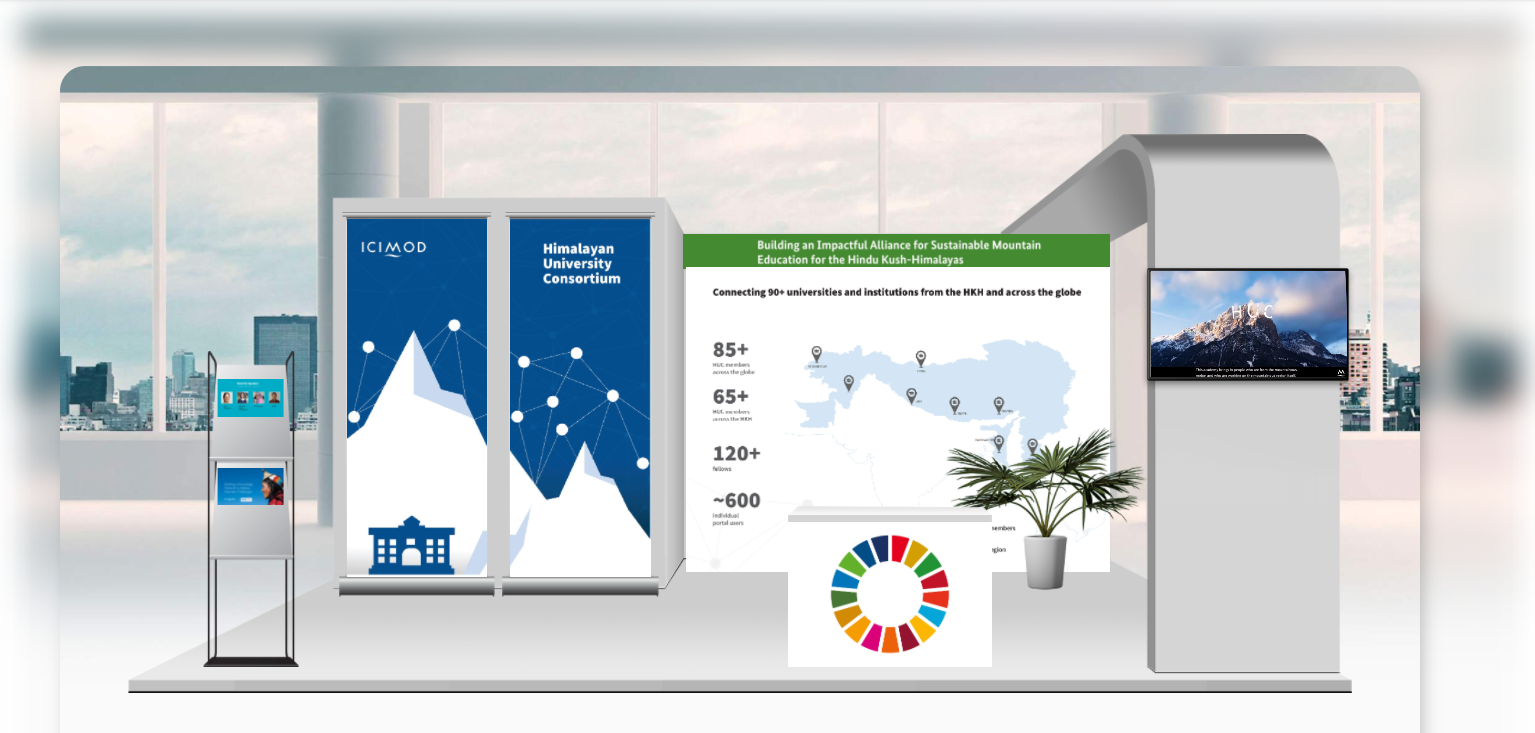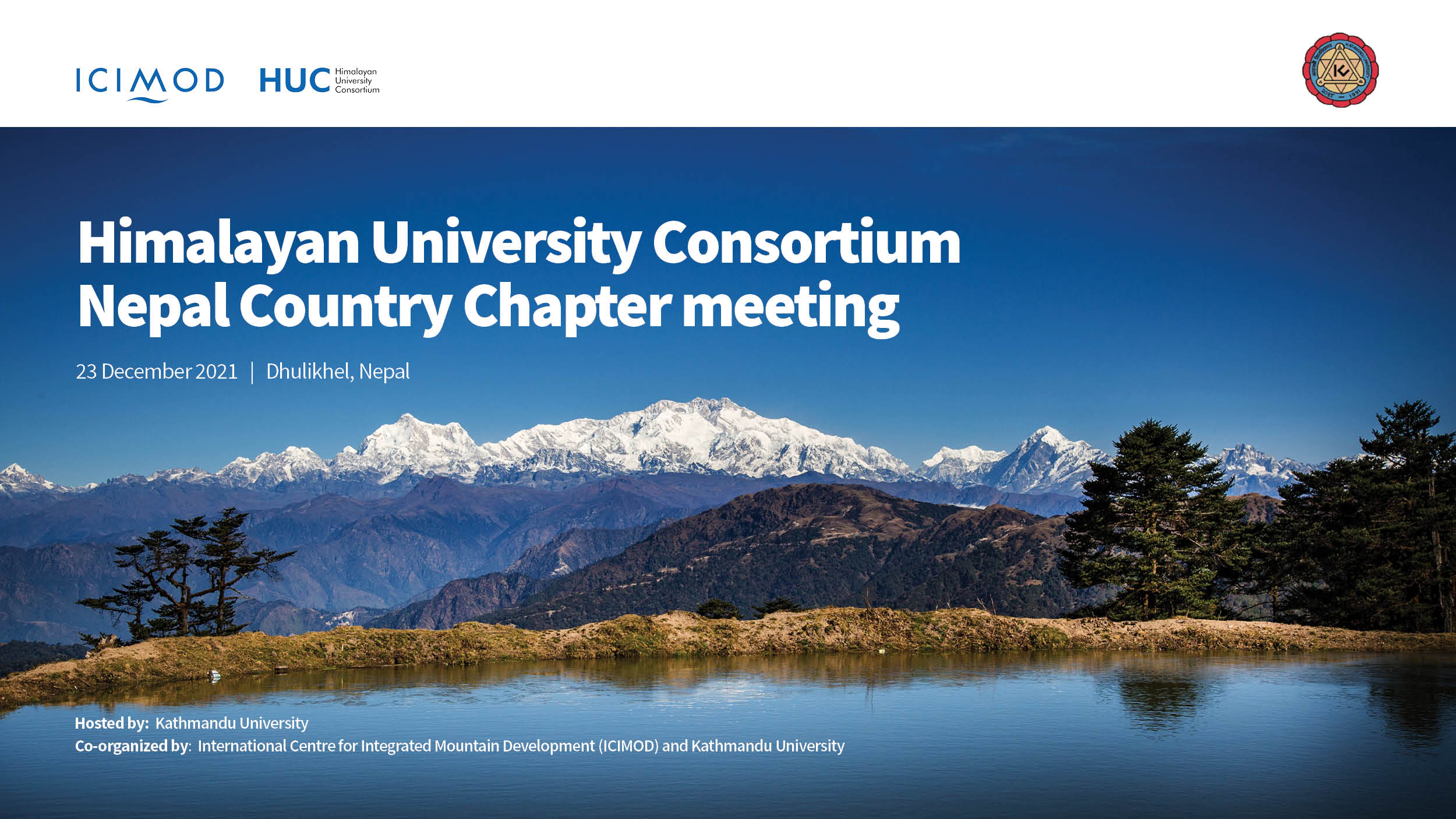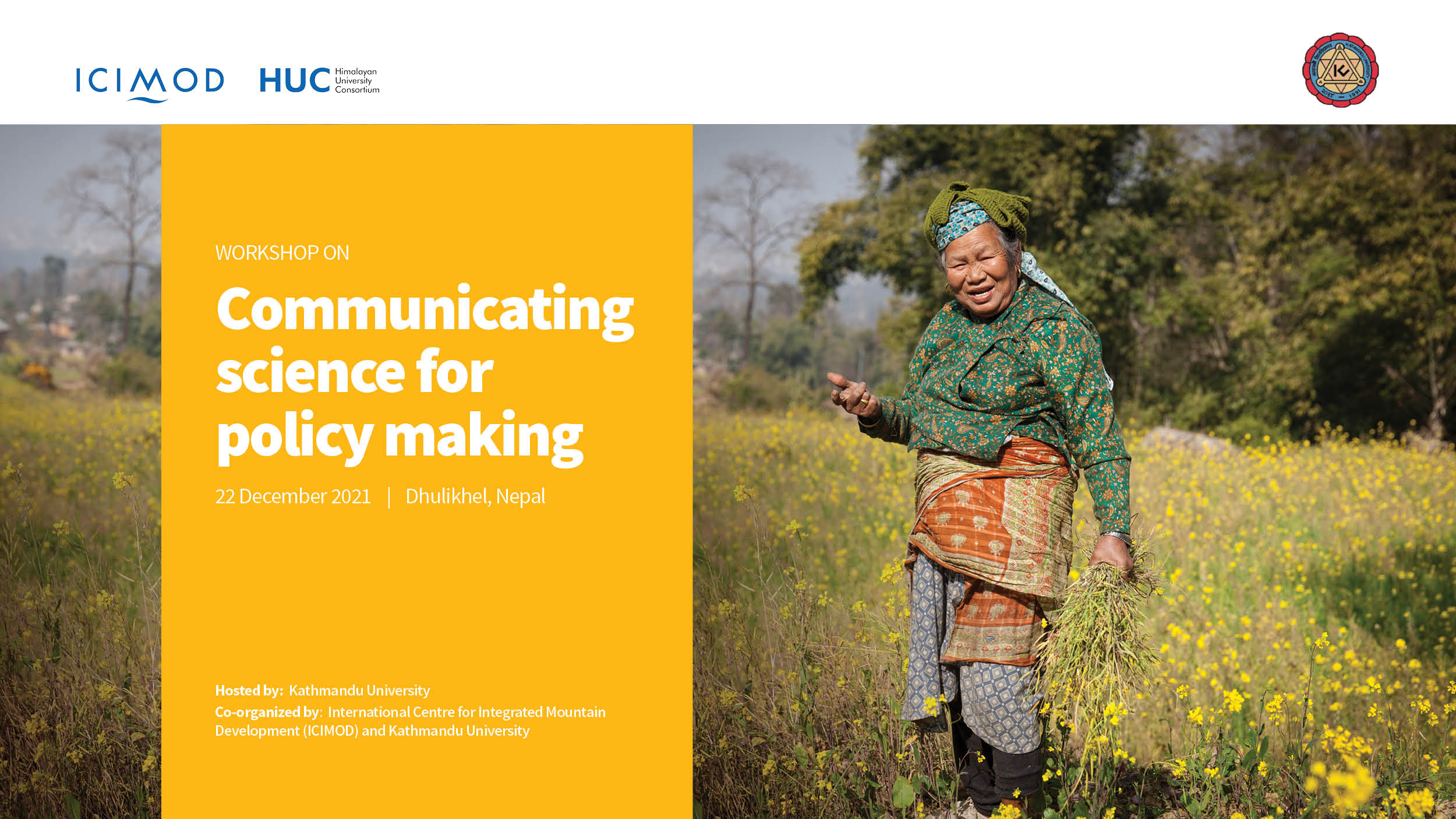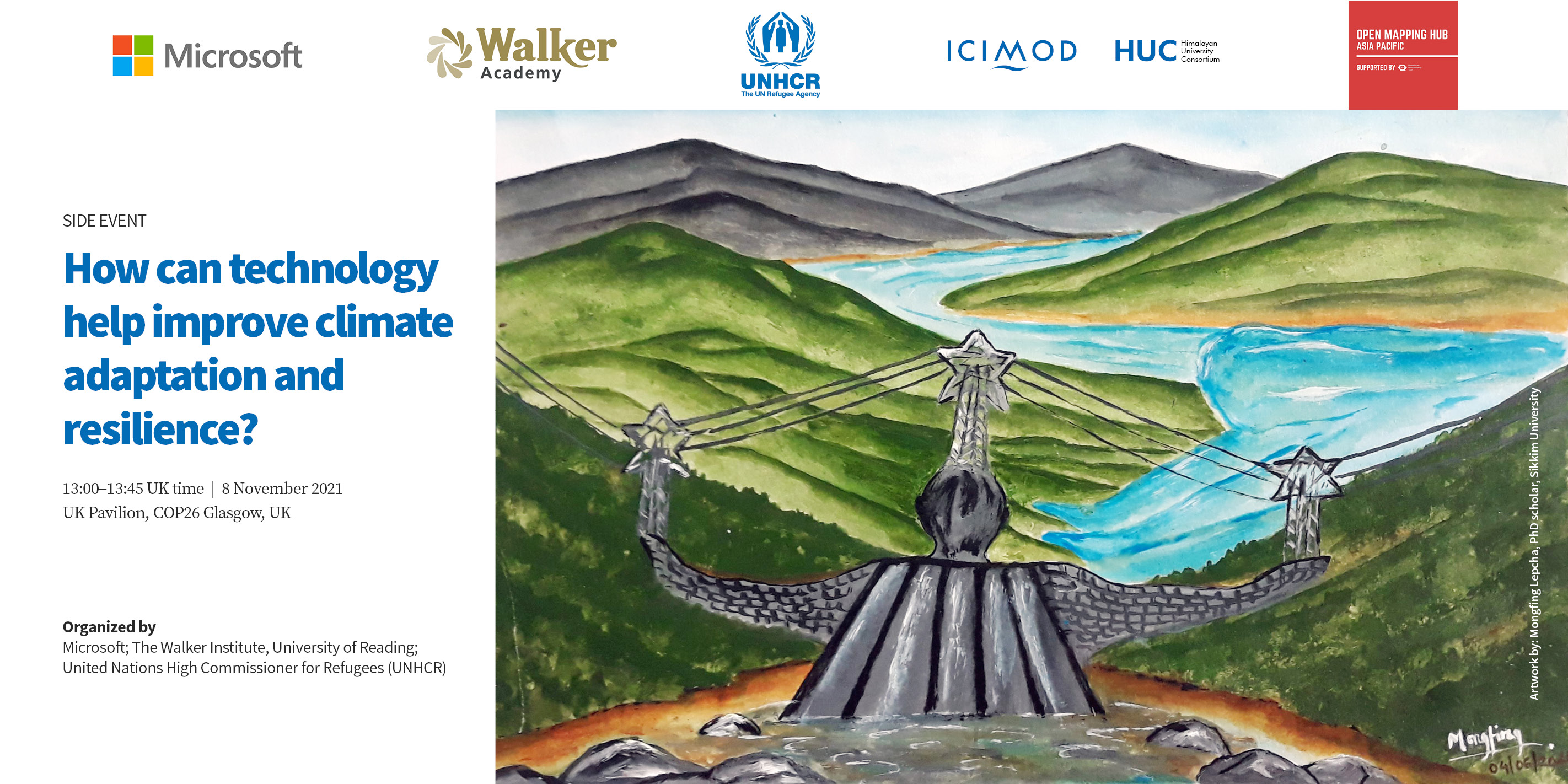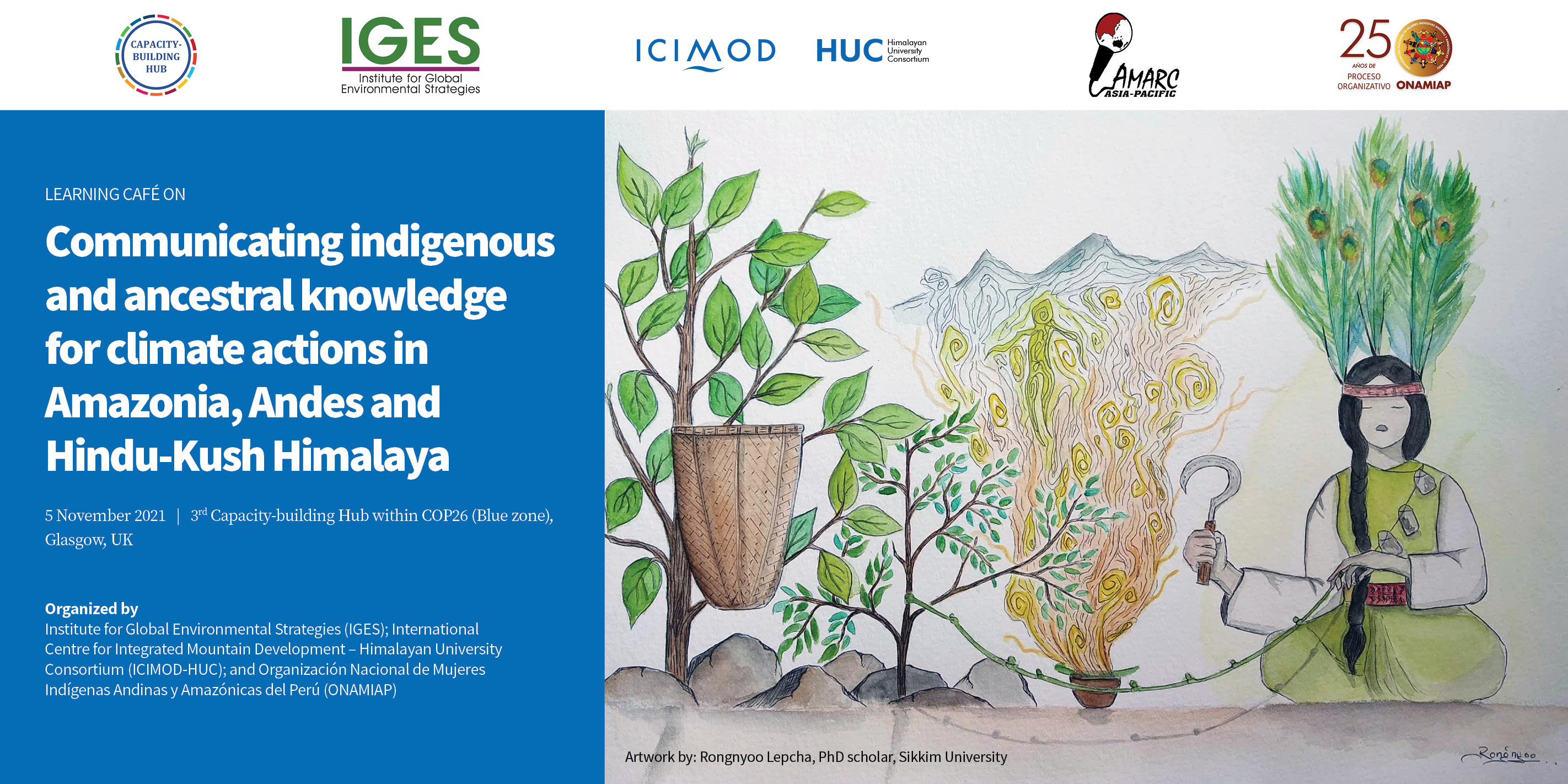Photo: Yarlung Tsangpo/Brahmaputra, Dan Smyer Yü
Organizers: Himalayan University Consortium; In partnership with My Climate Risk, a lighthouse activity of World Climate Research Programme (WCRP)
Co-hosted by Royal Thimphu College (Royal University of Bhutan) and Yunnan University
Himalayan University Consortium in partnership with My Climate Risk, a lighthouse activity of World Climate Research Programme (WCRP) organizes a publishing workshop – Storying climes of the Himalaya, Andes, and Arctic: Anthropogenic water bodies, multispecies vulnerability, and sustainable living. Details of the publishing workshop are given below.
Context
The Himalaya, the Andes, and the Arctic/tundra play a critical role in the hydrological cycle of the earth with their waters (in both solid and liquid forms), and in shaping multispecies habitats and cultural heritages within the biospheres fed by their waters. At the same time, they are experiencing new risks and degradation due to global climate change, such as melting ice, species extinction, and radical transformations of ecosystems and livelihoods. As a global outreach effort of the Himalayan University Consortium (HUC) for comparative studies of climate change in the earth’s altitudinal and latitudinal highlands, this workshop invites social and natural scientists, humanities scholars, graduate students, and development specialists to share their interdisciplinary-intended documentations and discussions of historical and contemporary narratives of climate knowledge in habitat-specific life communities in these three world regions.
Workshop and publication formats
Consisting of 4-5 thematic sessions, the workshop is a combination of thematic keynote talks by prominent scientists and scholars, individual presentations of original research papers, and peer discussions. The workshop organizers are committed to co-exploring the multifaceted meanings of clime and climate change, and creatively co-producing comparative implications from the interdisciplinary thought-exchanges among participants in both theoretical and policy terms. At the conclusion of the workshop, the designated publishing editors will work closely with participants to revise their papers for publication as a journal special issue or an edited book. Please refer the event brochure for details on the keynote speakers and conveners.
Topical themes
Framed by the interconnected topical themes of water bodies (glaciers, lakes, and rivers), multispecies vulnerability (humans, animals, plants, culturally animated landforms, and traditionally revered deities and supernatural beings), and knowledge of sustainable living (local and global), we welcome papers addressing, but not limited to, the following topics contextualized in watery climes: indigenous histories of water, human affective consciousness of water, climate knowledge in indigenous meteorology, local memories as proxies of climate change, local climate knowledge absent the word “climate”, climate incarnate as seasons and weather, mountains as water bodies, the Himalayan-Tibetan Plateau as a monsoon maker, geopoetics of glaciers, nonhuman nations/geographies, multispecies relational ontology, the Little Ice Age (1300s-1800s) and human/nonhuman migrations, modern hyperseparation of water and land, anthropogenic effects of modern borders, conservation values of indigenous animistic landforms and water bodies, water as an agent of environmental peacebuilding, and emerging new environmental ethics.
Conveners

Dan Smyer Yü
Kuige Professor of Ethnology, Yunnan University
International Faculty Member, University of Cologne
Dan Smyer Yü is the Kuige Professor of Ethnology, School of Ethnology and Sociology and the National Centre for Borderlands Ethnic Studies in Southwest China at Yunnan University, and an international faculty member of the University of Cologne, Germany. He received his Ph.D. in anthropology from the University of California at Davis in 2006. Currently he is the co-lead of HUC’s Thematic Working Group on Himalayan Environmental Humanities, an elected board member of International Society for the Study of Religion, Nature and Culture, a member of the Advisory Board of Yale Forum on Religion and Ecology, and the Series Editor of Routledge Environment, Multispecies Indigeneity and Borderland Series. He is the author of Mindscaping the Landscape of Tibet: Place, Memorability, Eco-aesthetics (De Gruyter 2015), and the co-editor of Trans-Himalayan Borderlands: Livelihoods, Territorialities, Modernities (Amsterdam University Press 2017), Environmental Humanities in the New Himalayas: Symbiotic Indigeneity, Commoning, Sustainability (Routledge 2021), and Yunnan-Burma-Bengal Corridor Geographies: Protean Edging of Habitats and Empires (Routledge 2021).
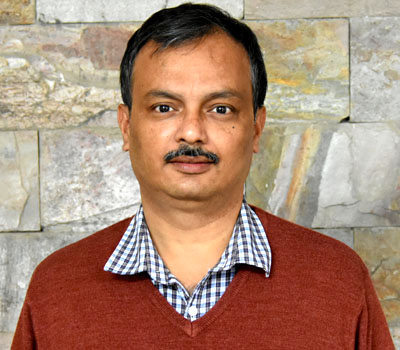
Arupjoyoti Saikia
Professor, Department of Humanities and Social Sciences
Indian Institute of Technology Guwahati
Arupjyoti Saikia is the Professor of History in the Department of Humanities and Social Sciences at the Indian Institute of Technology Guwahati. His teaching and research interests are in the field of Assam’s economic and environmental history. A post-doctoral fellow of Yale University, he has held visiting fellow positions at Cambridge University; University of London; Indian Institute of Advanced Studies, Shimla; and University of Calcutta.
His book The Unquiet River: An Environmental History of the Brahmaputra (Oxford University Press, 2019) was short-listed for Kamala Devi Chattopadhayay Book Award in 2020 and long listed for Atta Galatta– Bangalore Literature Festival Book Prize. This book got Honorable Mention for Ananda Kentish Coomaraswamy Book Prize in 2021 by the Association of Asian Studies. Saikia’s other published works include Forests and Ecological History of Assam, 1826-2000 (Oxford University Press, 2011) and A Century of Protests: Peasant Politics in Assam since 1900 (Rutledge, 2014).
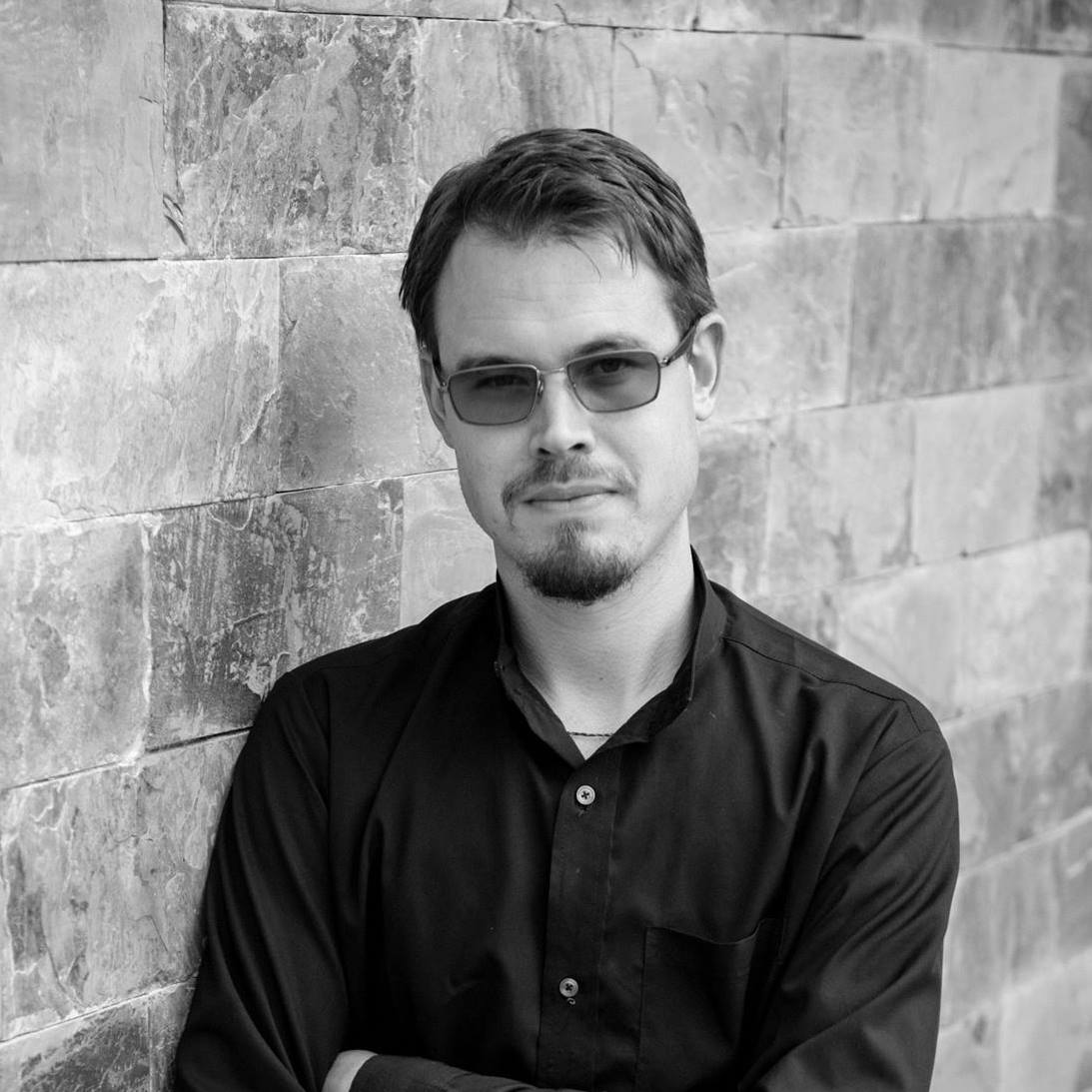
Jelle J.P. Wouters
Associate Professor, Department of Social Sciences
Royal Thimphu College
Jelle J.P Wouters is a social anthropologist and the Associate Professor at the Department of Social Sciences, Royal Thimphu College, Bhutan. He holds an M.Pil. in social anthropology from the University of Oxford and a Ph.D. in anthropology from the NorthEastern Hill University, Shillong, where he was also a Wenner-Gren grantee. Prior to joining RTC in 2015, he taught at Sikkim Central University, India, and was a visiting faculty at Eberhard Karls University of Tubingen, Germany, under the “Excellence Initiative” of the German Research Foundation. He is the author of In the shadows of Naga Insurgency (OUP 2018) and Nagas as a society against voting and other Essay (Highlander Books 2019), and the co-editor of Nagas in the 21st Century (Highlander Books 2017) and Democracy in Nagaland: Tribes, Traditions, and Tensions (Highlander Books 2018).
Inaugural keynote session: “Climing” earth summits of the Himalayas, Andes and Arctic
As part of the inaugural session of the workshop, the keynote speakers – Sunil Amrith, Astrid Oberborbeck Andersen, and Karsten Paerregaard – will be speaking on their research on climate and water in the Himalaya, Andes, and Arctic, respectively. This keynote session is open to the public.
If you are interested in attending the lecture, please find the concept note and registration link below.
Keynote profiles
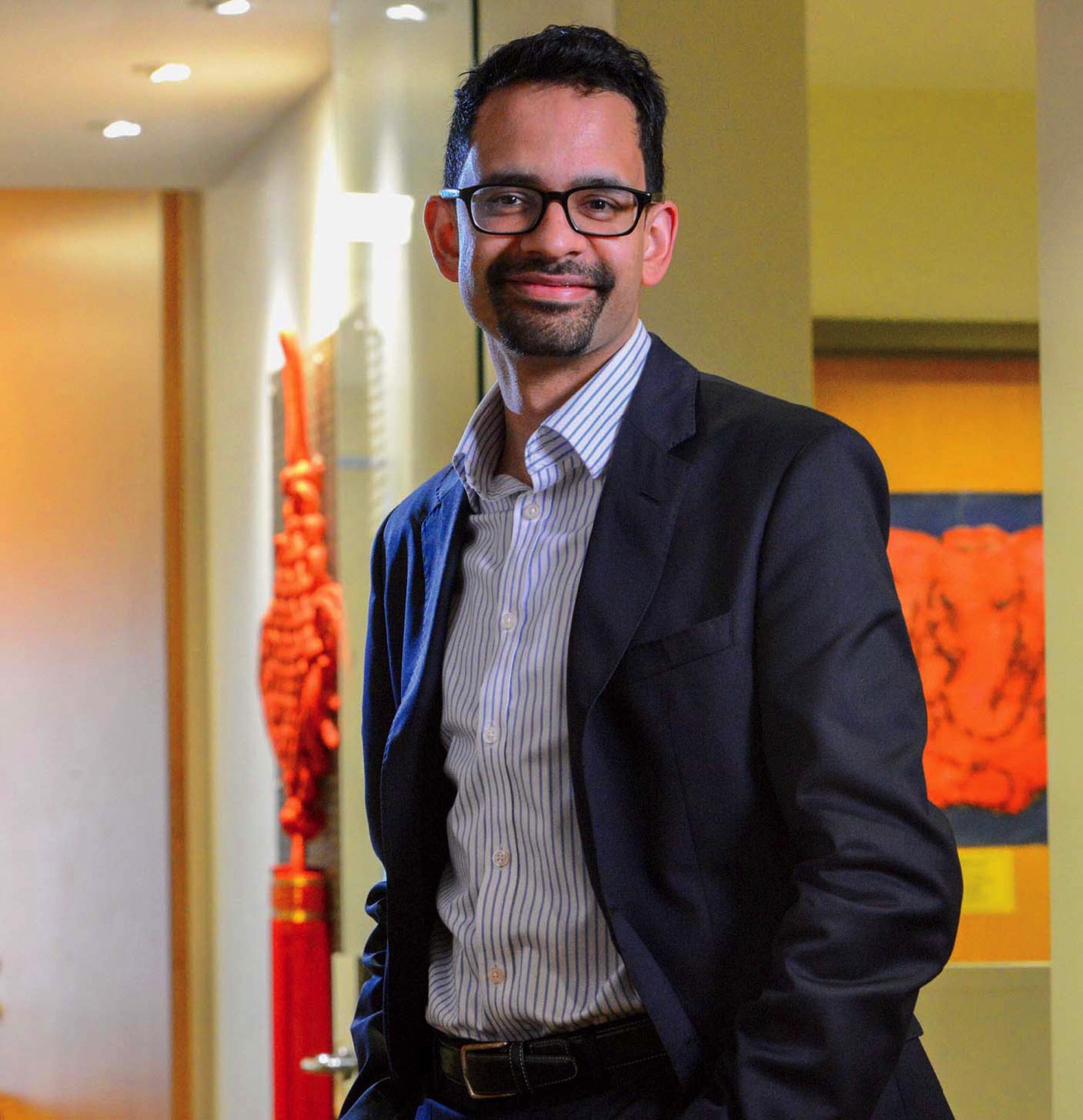
Sunil Amrith
Renu and Anand Dhawan Professor of History
Department of History, Yale University
Sunil Amrith is the Renu and Anand Dhawan Professor of History, and current chair of the South Asian Studies Council. His research focuses on the movements of people and the ecological processes that have connected South and Southeast Asia. Amrith’s areas of interest include environmental history, the history of migration, and the history of public health. He is a 2017 MacArthur Fellow, and recipient of the 2016 Infosys Prize in Humanities. Amrith’s most recent book, Unruly Waters (Basic Books and Penguin UK, 2018), was shortlisted for the 2019 Cundill Prize, and was reviewed in Nature, The Economist, The Wall Street Journal and The New York Review of Books. His previous book, Crossing the Bay of Bengal: The Furies of Nature and the Fortunes of Migrants (Harvard University Press, 2013) was awarded the American Historical Association’s John F. Richards Prize in South Asian History in 2014, and was selected as an Editor’s Choice title by the New York Times Book Review. He is also the author of Migration and Diaspora in Modern Asia (Cambridge University Press, 2011), and Decolonizing International Health: South and Southeast Asia, 1930-1965 (Palgrave, 2006), as well as articles in journals including the American Historical Review, Past and Present, The Lancet and Economic and Political Weekly. Amrith serves on the editorial boards of the American Historical Review and Modern Asian Studies, and he is one of the series editors of the Princeton University Press book series, Histories of Economic Life.
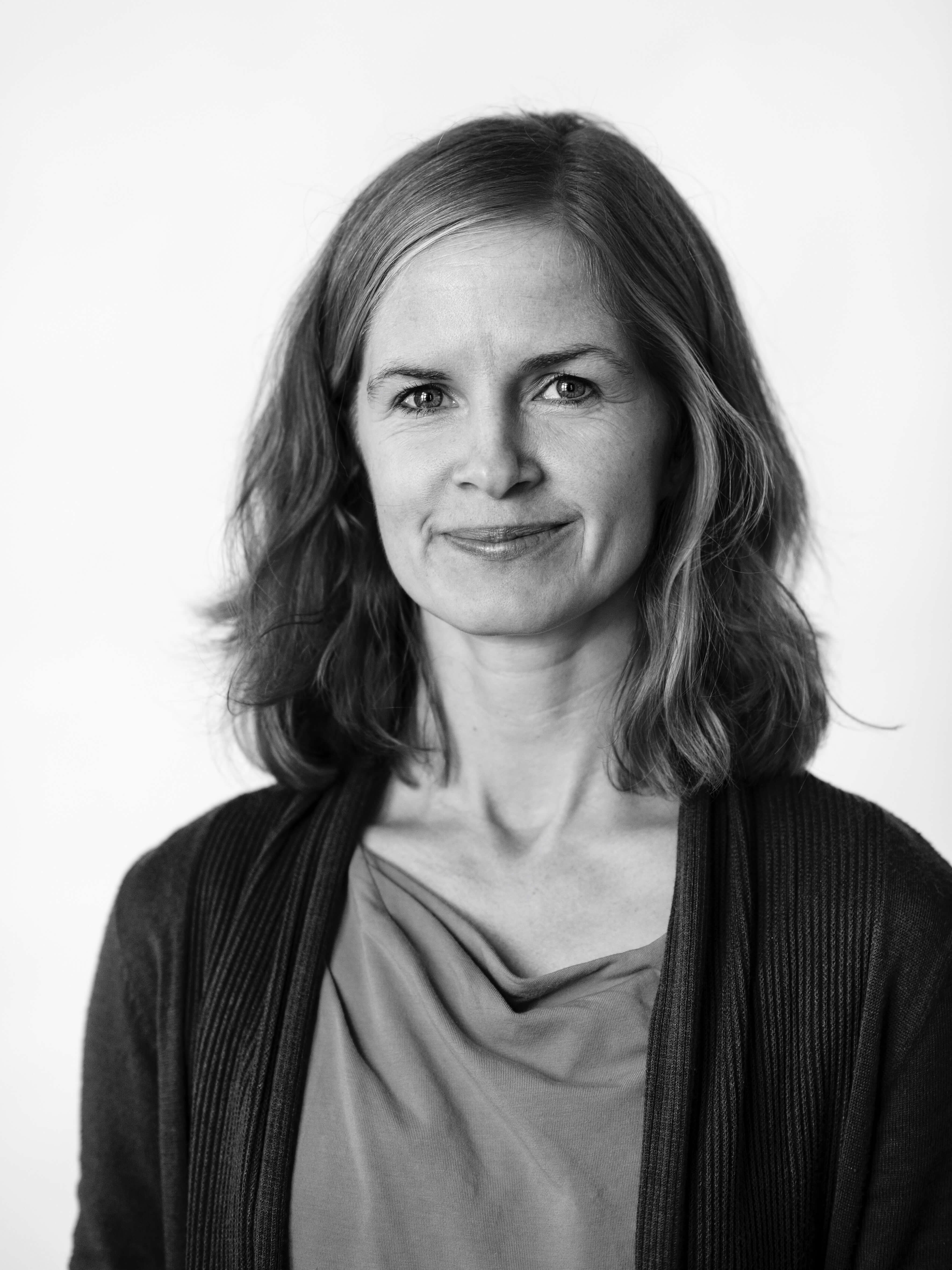
Astrid Oberborbeck Andersen
Associate Professor of TechnoAnthropology
Aalborg University, Denmark
Astrid Oberborbeck Andersen is the Associate Professor of techno-anthropology at Aalborg University. Her research centers on human environment relations and how to make anthropological perspectives matter in interdisciplinary research on ecosystems, environmental relations, and climatic crises, as well as in public life. Her research is based on detailed and critical ethnography, and she has extensive fieldwork experience in Peru and Greenland. She has published on themes such as water politics, wildlife and environmental management, technologies and controversies, and multispecies relations. She is a coeditor of the book Anthropology Inside Out. Fieldworkers taking note (Sean Kingston Publishing 2020) and the forthcoming anthology Rubber Boots Methods for the Anthropocene: Curiosity, Collaboration, and Critical Description in the Study of Multispecies Worlds (University of Minnesota Press, 2022). Since 2018, Astrid is chairing the board of Antropologforeningen i Danmark, the Danish Anthropology Association. Anderson holds a PhD in social anthropology from the University of Copenhagen.
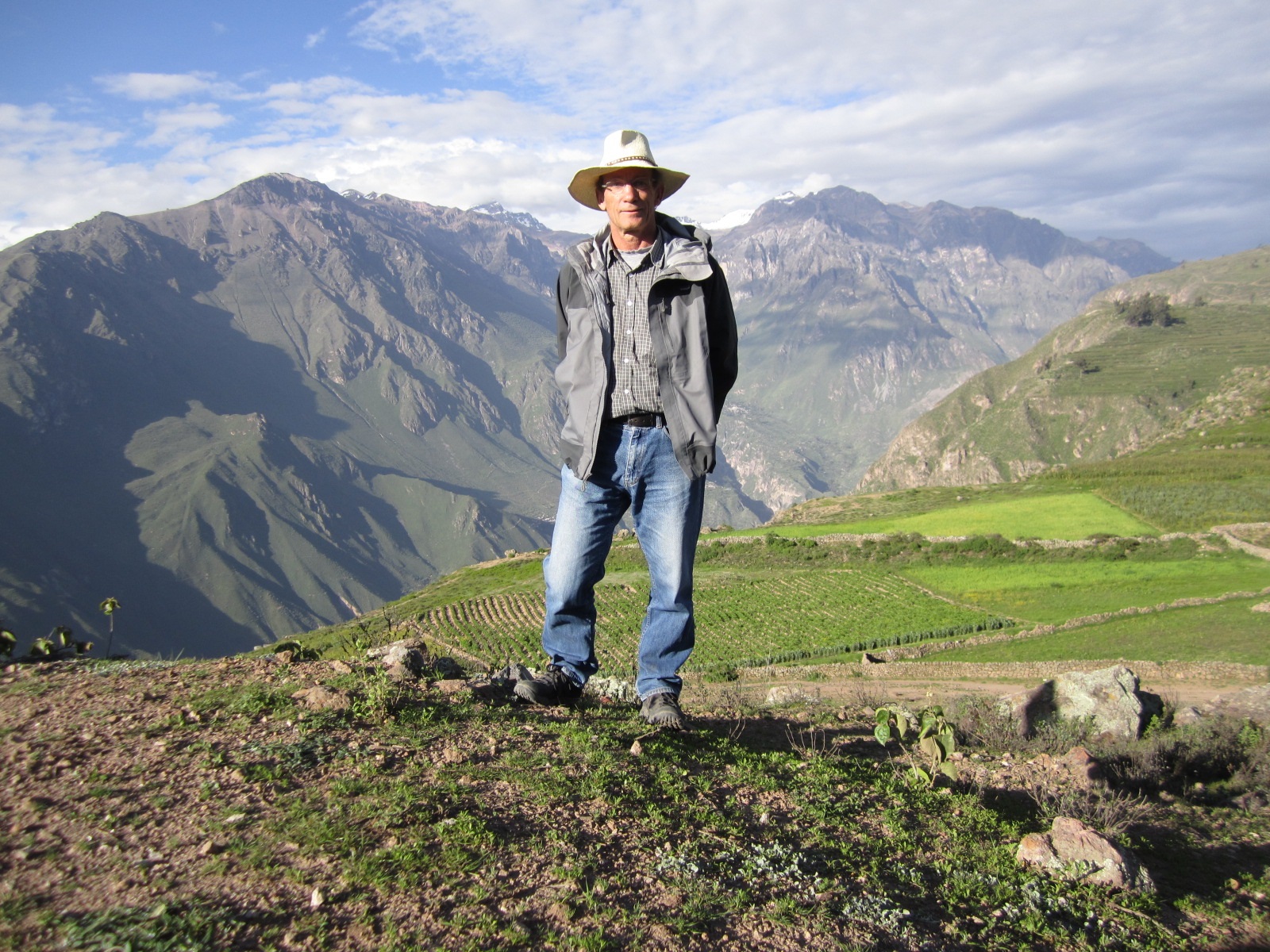
Karsten Paerregaard
Professor Emeritus of Anthropology
University of Gothenburg, Sweden
Karsten Paerregaard is the Professor Emeritus of Anthropology at School of Global Studies. University of Gothenburg, where he took up the position as chair Professor of Social Anthropology in 2012. He has previously worked at University of Copenhagen and the Danish Institute of International Studies. Paerregaard has been the principal investigator of several research projects and been granted research funding numerous times in Sweden and Denmark. He has also been research fellow at the Woodrow Wilson Center, Washington DC and at Swedish Collegium for Advanced Study, Uppsala and has twice been visiting Professor at University of Florida. Paerregaard’s ethnographic field research has been centered in Peru where he has worked for almost 40 years.
It also includes multi-sited fieldwork among Peruvian migrants in North America, Southern Europe, Japan, and Argentina and Chile. Paerregaard’s research interests and publications cover such topics as ecology, water and irrigation, livelihoods, social organization, power and inequality, religious denominations, ritual activities, ethnicity and indigeneity, and cosmology and offering practices.
Currently, his research is focused on the intersection between migration, environment, climate and culture in the Peruvian Andes. His books include Linking Separate Worlds. Urban Migrants and Rural Lives in Peru, Berg (1997); Peruvians Dispersed. A Global Ethnography of Migration, Lexington (2008); and Return to Sender. The Moral Economy of Peru’s Migrant Remittances, UC Press(2015). He has recently completed a book manuscript titled Andean Meltdown. A Climate Ethnography of Water, Power and Culture in Peru, which examines the impact of climate change on water management and mountain worship in the Peruvian Andes and which currently is reviewed by an American university press. Paerregaard has also published extensively in international journals, recently in HAU. Journal of Ethnographic Research (2020), Environmental Communication (2020), Water International (2020), Water Alternatives (2019), Climate and Development (2018) and WIRE’s Water (2018).




